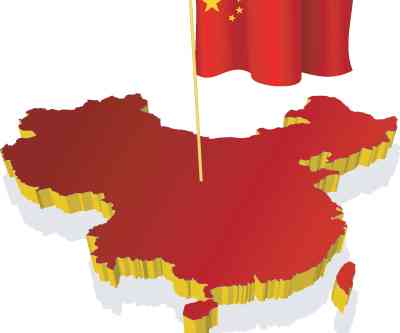BHP’s China sales jump, but weaker growth a risk

By Robb M. Stewart
— BHP sales into China in last year generated US$20.3 billion
— Cautions fall in China demand may hit its results
— Rio Tinto points to slowing in minerals markets, but says order books full
(Recasts first two paragraphs, adds detail from BHP and Rio in 7th-8th paragraphs)
MELBOURNE (MarketWatch) — China’s position as the world’s economic engine is being reinforced as expectations for growth in developed markets wane, but so is the risk a decline in its appetite for metals and minerals may mean the Asian giant won’t offset any Western slowdown.
The world’s largest mining companies remain optimistic demand growth for key commodities will remain resilient, but even they have sounded a note of caution. These concerns have weighed on mining stocks, with BHP Billiton Ltd. BHP -1.05% and Rio Tinto PLC’s RIO -0.74% share prices each down around 20% since the start of the year.
BHP, the world’s largest mining company by market value, generated 28% of its total sales, or US$20.3 billion, in China in the last financial year. That’s a sharp jump from sales to the country of US$13.2 billion the year before.
In its annual report released Wednesday, BHP identified a slowdown in China’s economy among the biggest risks it faces. Weaker Chinese growth could mean lower commodity prices and demand, denting its earnings.
Demand may also be hit by China’s strategy of increasingly seeking self-sufficiency in key commodities, BHP said.
China in 2010 represented 59% of global seaborne demand for iron ore, 39% of copper demand, 38% of nickel, 41% of aluminum and 42% of energy coal. It also represented 10% of global oil demand, figures from BHP showed.
“We believe that the Chinese government has the appropriate policy settings to sustain its long-term ambitions for economic growth,” said Jacques Nasser, chairman of the Melbourne-based company in the annual report. “This level of economic development will support demand and operating margins for low-cost diversified producers like BHP Billiton.”
Rio Tinto, the world’s second-largest iron ore producer after Brazil’s Vale SA VALE +0.15%, Tuesday said there had been a softening in mineral markets in the past six months. In a presentation from London, Chief Executive Tom Albanese told investors that customers are more cautious, particularly in the U.S. and Europe, although Rio’s order books are full and demand and prices are holding up. Demand for copper, aluminum and iron ore is expected to double over 15 to 20 years, he said.
The largest mining companies continue to invest heavily in expanding production, with billions of dollars earmarked for projects around the world. In Australia alone, the government expects nearly $78 billion of capital spending on energy and resources projects during the year to the end of June 2012–up 33% on the previous year.
{{ commodity.name }}
{{ post.title }}
{{ post.date }}




Comments